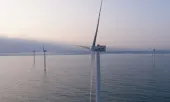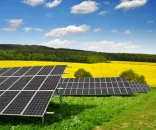Bangladesh achieves highest growth in solar systems installations
With an average of over 50,000 new installations each month, Bangladesh now has got the fastest growing solar home systems
programme in the world.
The World Bank has been supporting the solar home systems programme to provide electricity in rural Bangladesh since 2002
through the Rural Electrification and Renewable Energy Development Project (RERED), says a WB press release.
With support from the World Bank and other development partners, about 2 million solar home systems have already been
installed in rural areas of Bangladesh .
It said this has been possible due to the successful partnership between the government-owned Infrastructure Development
Company Limited (IDCOL) and the Non-Government Organisations (NGOS) like the Grameen Shakti, Rural Services Foundation and
many others. Solar home systems are an economically viable solution for providing electricity in villages where grid
electricity would be too expensive to build.
The solar home systems consist of a solar panel, a battery, and a charge controller. The battery is charged by solar
energy, which in turn provides electricity to the households. Solar home systems meet the basic electricity needs of rural
people, who would have otherwise been dependent on kerosene lamps for lighting.
The World Bank said the electricity provided from the systems has helped children spend more time studying, and new
opportunities are emerging for village enterprises. Rural markets can now remain open longer hours after dark and conduct
brisk businesses, thanks to the solar lights.
The World Bank has contributed about USD 492 million for the RERED Project that ended in December 2012. Recognising the
success of this programme in providing electricity in the rural areas of Bangladesh , the World Bank approved, in
September 2012, USD 155 million for the Rural Electrification and Renewable Energy Development Project II (RERED II)
project to further scale up the solar home systems and other renewable energy options.
The RERED II project will support provision of 550,000 solar homes systems in rural areas, renewable energy-based mini-
grids in remote rural areas, replacement of diesel-run irrigation pumps with solar pumps, dissemination of clean cook
stoves and deployment of energy-efficient Compact Fluorescent Lamps (CFLs). Technical assistance to the power sector will
also be provided.
https://energybangla.com/2013/02/26/2544.html#.US0QNaLryKY













 Advertise
Advertise











